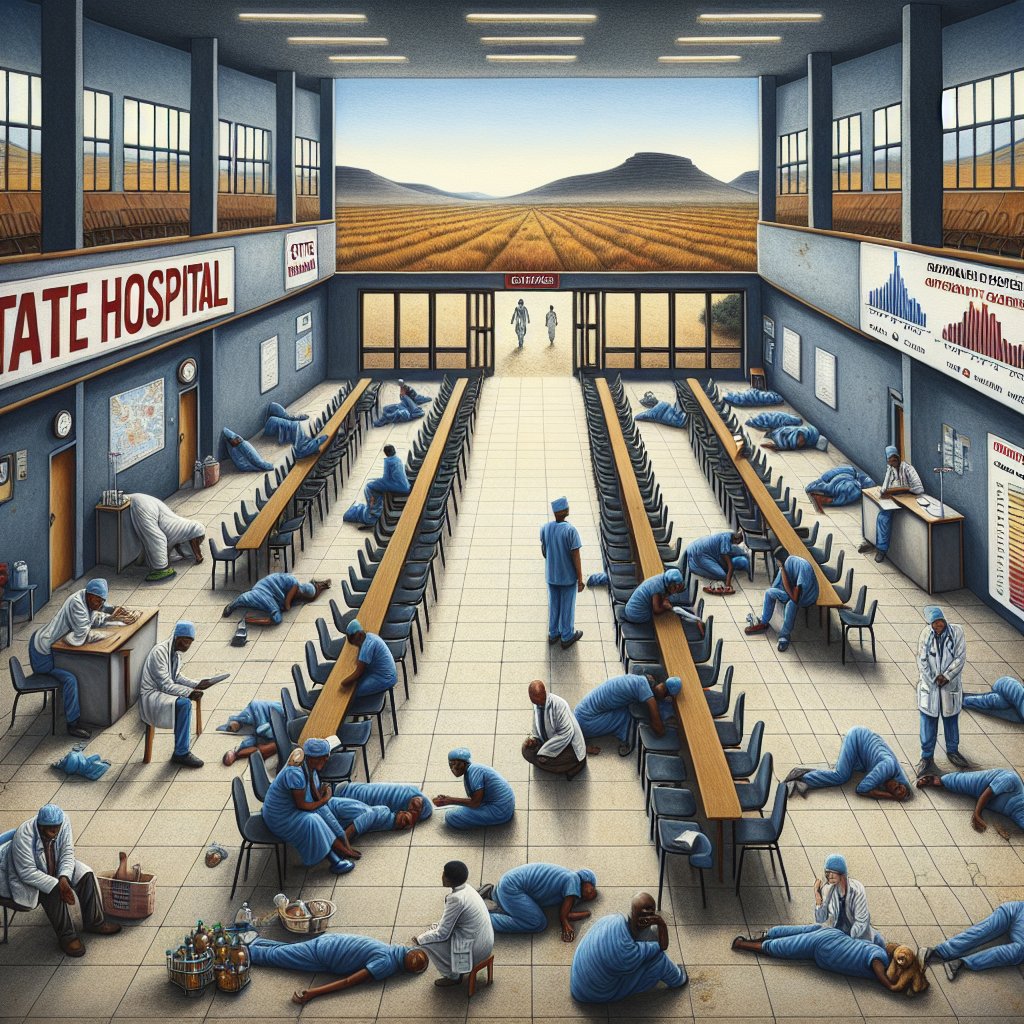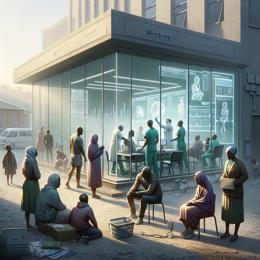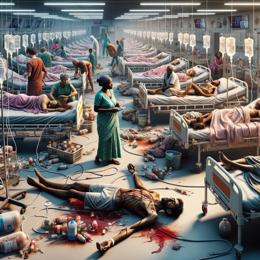Content created by Bailey our AI journalist
South African State Hospitals Witness Exodus of Doctors to Private Sector Amid Fiscal Crunch
The South African healthcare system is facing a crisis as a significant number of practicing doctors are choosing to leave state hospitals in favor of the private sector or opportunities abroad due to financial difficulties restricting the government's capability to employ newly qualified professionals. Addressing the media, Dr. Mvuyisi Mzukwa, chairman of the South African Medical Association (SAMA), disclosed the disturbing trend which sees the public health system bear the brunt of understaffing and diminished service provision.
In an alarming revelation, it has come to light that as many as 800 doctors, fully qualified and ready to contribute their expertise to the South African public health system, are left stranded without positions, victims of a crippling budgetary shortfall. The SAMA Trade Union (Samatu) emphasized the budgetary constraints as a perennial excuse proffered by the Department of Health, which seems to lack concrete strategies or actions to address the financial predicament and support the hiring of these essential healthcare workers.
The shortage of doctors has a ripple effect across the public health sector. Working conditions have deteriorated, and existing medical staff are often overwhelmed by the sheer volume of cases, leading to burnout and frustration. This situation is not only unsustainable but also dissuades future graduates from entertaining the prospect of a career in the state-run system. An additional concern raised by Dr. Mzukwa is the opacity regarding the actual number of vacancies in state hospitals, as the government stands accused of not replenishing positions vacated by retiring doctors, effectively erasing them from the system.
Of particular concern is the rural healthcare landscape, where the scarcity of medical practitioners is alarmingly pronounced. General healthcare workers, including nurses, are sparse, but the scarcity of highly trained specialists is even more dire. Many specialists, rather than stepping into roles where they are sorely needed, are either opting to enhance their careers in the private sector, emigrate, or remain underemployed in positions that do not make full use of their specialist training.
This exodus from public to private echoes the systematic challenges within the public health sector. Budget cuts over time and a lack of strategic future resource planning have taken their toll on the ability of the Department of Health to maintain a robust workforce. Extensive implications of this shift include a detrimental impact on the accessibility and quality of healthcare services for the majority of South Africans relying on public health.
The situation spells out a cautionary tale as well as a call for meaningful action. The public depends on the state healthcare system, and swift, effective measures to resolve these challenges are crucial. The voice of the SAMA trade union stands as a testament to the urgent need for a systemic overhaul that can adequately address both current deficiencies and pave the way for a sustainable, efficient, and resilient health care service in South Africa.










